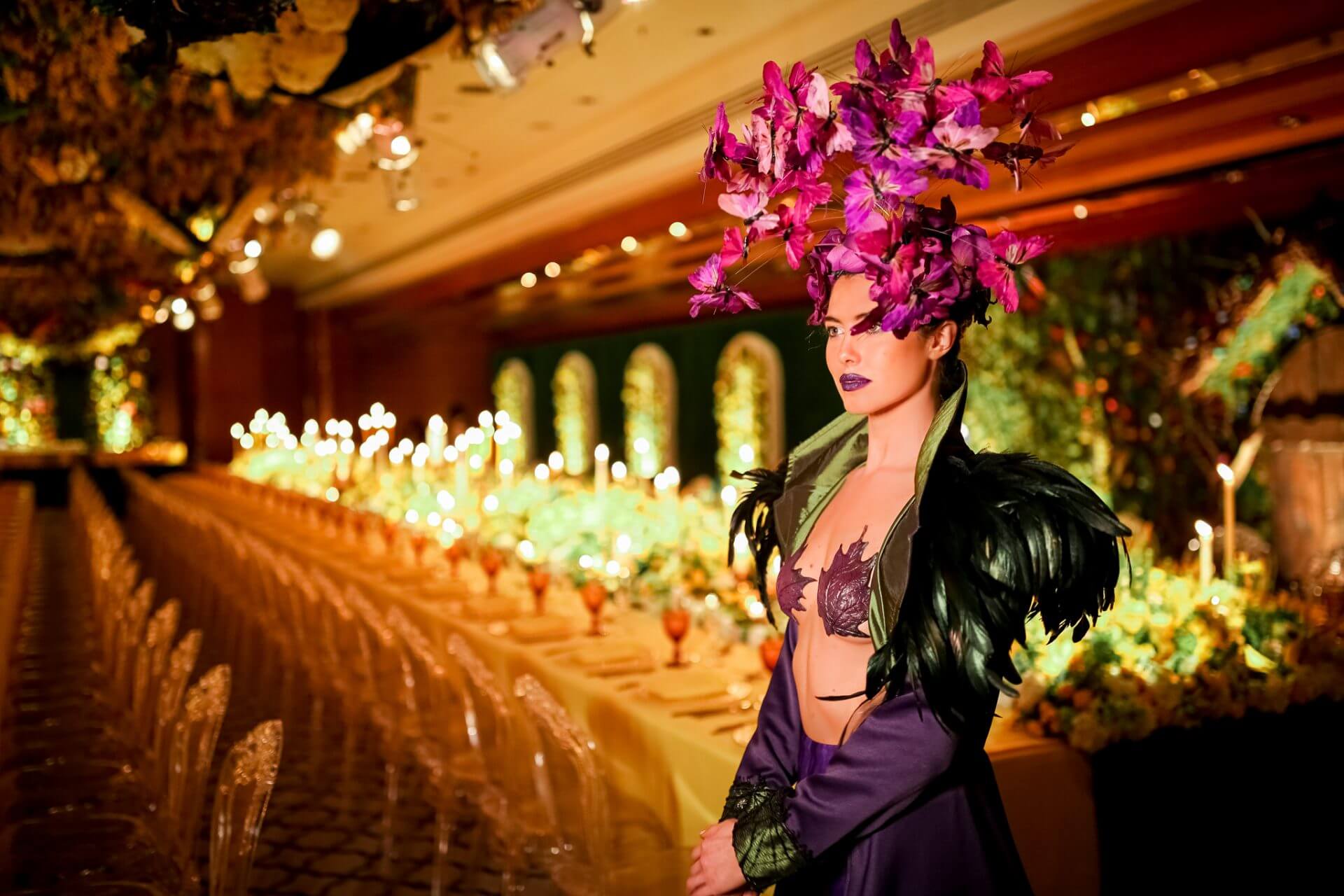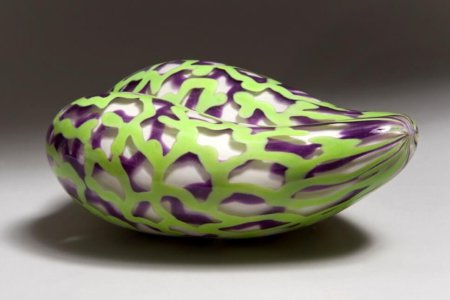These days, everyone’s a critic. They lament the shoddiness of a production’s special effects, or how an actor’s make-up reflects on screen or even how moving a film score is. At its heart, live and recorded performances only exist because of the work that takes place behind the scenes — and, with the sheer volume of media being put out, it’s imperative that these are of the highest quality.
Despite this, there aren’t enough trained, skilled crew members to make this possible. In the UK, crew members tend to lack formal training when taking on production jobs, while the “first thing” cut from film budgets was training. This is leaving a gaping hole in the industry with few qualified hires left to fill it.
Enter the University of Wolverhampton. It is home to the School of Performing Arts, an institution wholly dedicated to equipping its students with the skills they need to create, design, and support every element of performance. Above all, it is forward-looking — ensuring that students are not only ready to address the needs of the industry as it stands today, but have the intuition to meet future demands as the realm of performance develops.
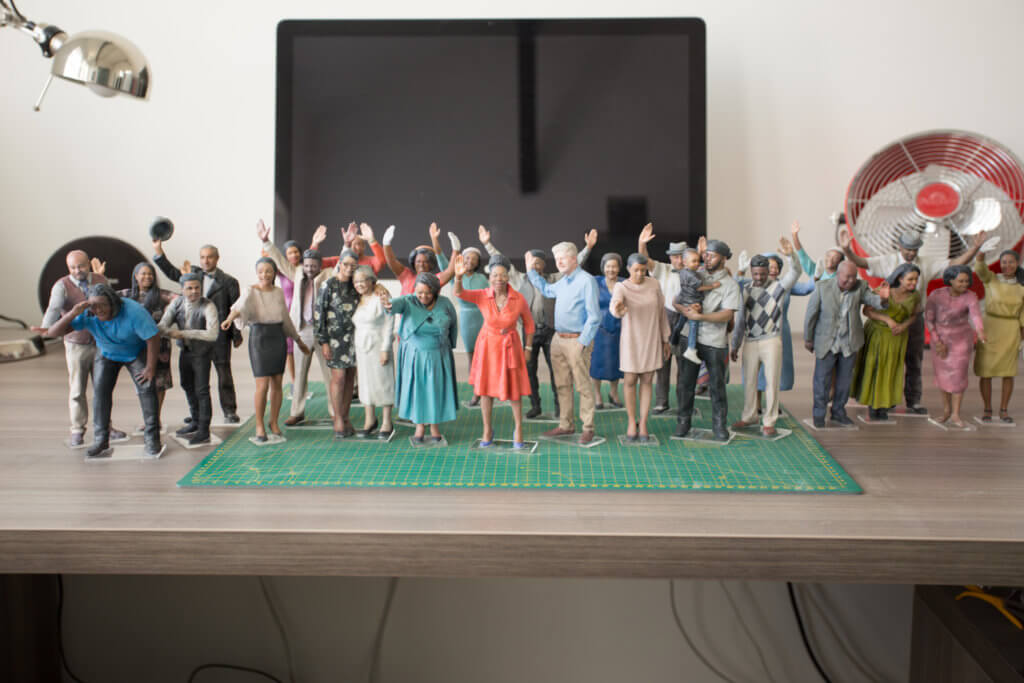
Figurines created for a Windrush project. Participants were 3D scanned and the resulting images were printed in plaster and exhibited by Dame Floella Benjamin (Centre) at the Chelsea Flower Show. Photography courtesy of Backface Studios. Source: University of Wolverhampton
Take the BA (Hons) Digital Production Arts programme, for example. The first course of its kind to enter the UK higher education market, it combines the latest in digital technology to create and design special effects for theatre, film, and television. Here, students learn about everything from traditional aspects of theatre to virtual and augmented reality, as well as lighting, sound, and theatre design.
What sets this programme apart, however, is its focus on industry-standard trends. “The industry is in urgent need of graduates who have a good working practice in traditional sculpture, moulding, casting, make-up and prosthetic application, costume and theatre design as well as its digital equivalents of scanning, digital Zbrush sculpture and 3D printing,” explains Neil Hughes, course leader for the programme.
At the same time, students are made aware of how the demands of the industry have changed over time through the “Foundations in Special Effects” module. “This course covers the evolution of special effects media make-up and prosthetics from the conception in vaudeville theatre to the emergence of the film industry, Lon Chaney to Gordon J Smith, Dick Smith to Rick Baker,” shares Hughes. “Students learn the art history and who the pioneers were before working with the materials themselves.”
All the while, they receive on-the-job training in the form of working with peers from a wide range of performance courses such as Acting, Dance, and Musical Theatre. This is supported by access to the university’s innovative Performance Hub, fully equipped with music teaching, performance and practice rooms, a traditional black box theatre, and high-end professional recording studios, while the Production Hub has bespoke technology suites running the latest industry-required software, such as Zbrush.
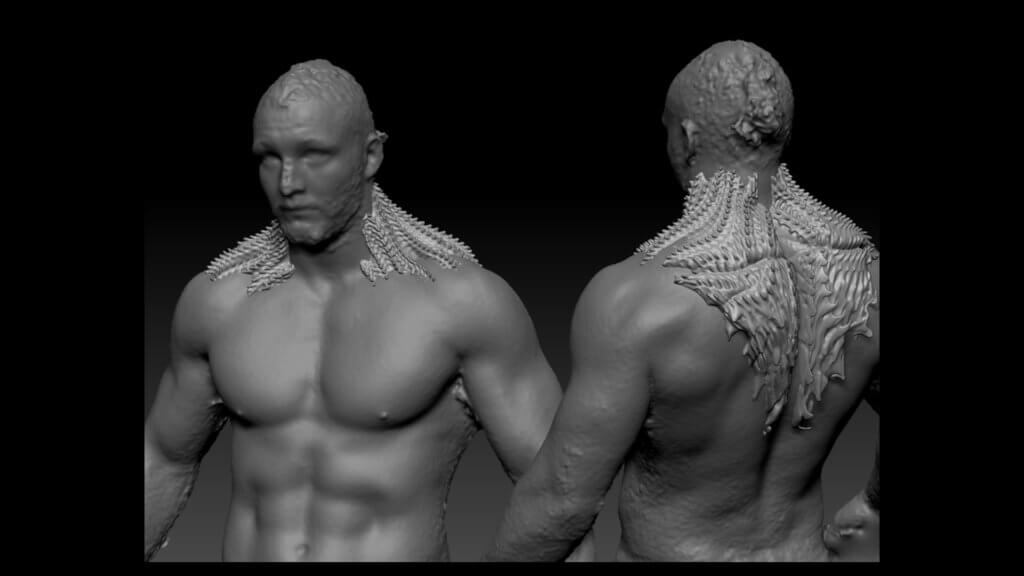
ZBrush image of 3D scanned model’s body, manipulated in ZBrush to design a prosthetic moulding onto the body. The Production Hub is equipped with bespoke technology suites running the latest industry-required software. Source: University of Wolverhampton
On top of this, the university has partnerships with leading industry professionals, including Studio Sangeet, Phyllis Cohen, and Backface Studios. Hughes himself is an active production designer, and has brought students on to assist alongside his team on productions for royalty, international spectacles such as the Olympic opening and Commonwealth game ceremonies, and even on set to work on Steven Spielberg’s box-office success “Ready Player One.”
Another innovative programme is the BSc (Hons) Audio Technology and Production, which provides students with a unique blend of audio production, creative computing, employability/industry practice, and research. It’s industry-accredited by JAMES (Joint Audio Media Education Support), who accredit the course on behalf of the APRS (Association of Professional Recording Services), MPG (Music Producers Guild), MMF (Music Managers’ Forum), AMPS (Association of Motion Picture Sound), MIA (Music Industry Association), ABTT (Association of British Theatre Technicians), PLASA and the UK Screen Association.
Here, students learn everything about audio technologies as used in professional, practical, and theoretical contexts, including music production, game and film sound, sound design and synthesis, live sound, and the design and development of interactive tools. Alongside this are optional modules covering topics such as songwriting, lighting, teaching, and AR/VR, allowing every student to tailor their experience according to their professional goals.
In this, no expense is spared. Students can use a range of recording studios, where classic analogue recording techniques can be combined with the more reliable technologies provided by the digital sphere. On top of this are dedicated live rooms for recording across a variety of mediums. By the end of the programme, students would have used, designed, and built various hardware and software audio systems for industry-relevant applications — truly preparing them for a successful career in audio.
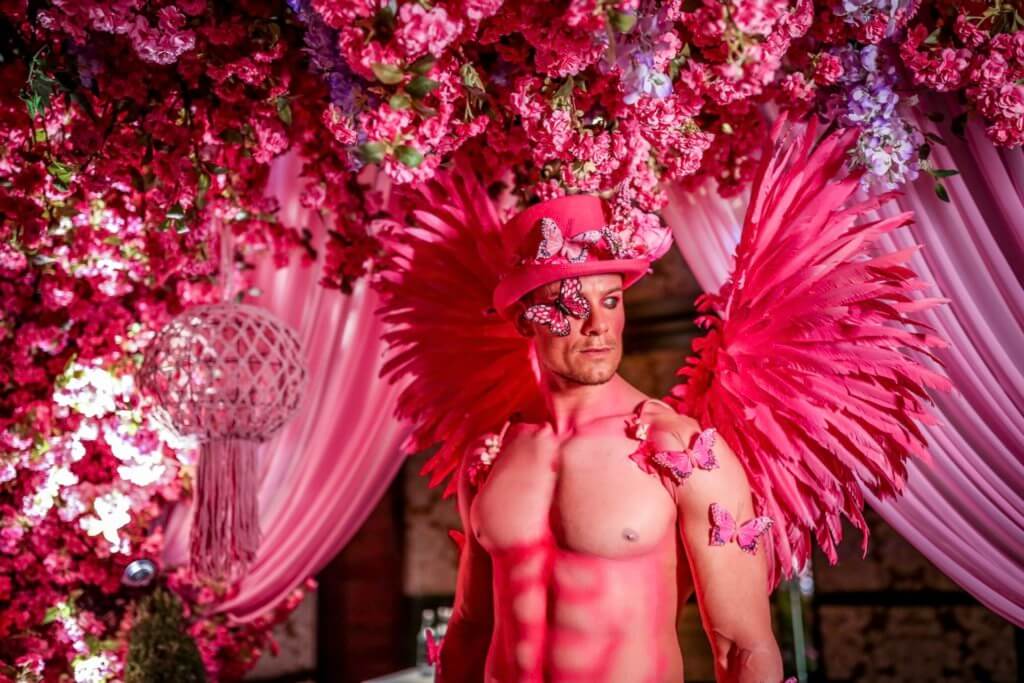
Student work experience: King Oberon, Costume, media makeup and prosthetic individually hand-feathered wings for a live event in Mayfair, London. Photography courtesy of Sanshine Photography. Source: University of Wolverhampton
Students are taught by an experienced and dedicated teaching staff with significant involvement from industry professionals, giving them plenty of opportunities to work with well-known players in the field. In recent years, students have worked one-on-one with Olga Fitzroy (Dua Lipa, Coldplay, Foo Fighters, Hans Zimmer), Ken Scott (The Beatles, David Bowie), Gary Bromham (Sheryl Crow, George Michael), and Charlie Hugall (Florence and the Machine, Ed Sheeran, Halsey), among others.
It’s little wonder, then, that alumni from the School of Performing Arts have gone on to win BAFTAs, work as mixers at the BBC, and found success as music producers, game audio sound designers, and more. In Hughes’s words, the school is “a place of equal opportunity” where students are encouraged to “approach projects with their own unique voice” — giving them every chance to thrive in the new world that’s developing around them.
Find out more about the BA (Hons) in Digital Production Arts here, and visit the University of Wolverhampton here.
Follow University of Wolverhampton on Facebook, Twitter, Instagram, and LinkedIn.

